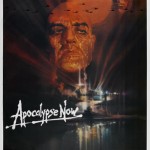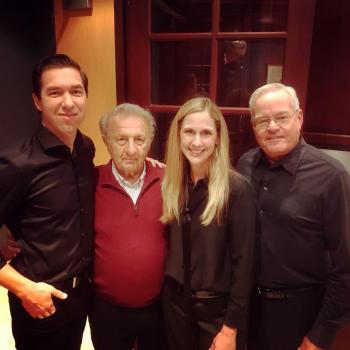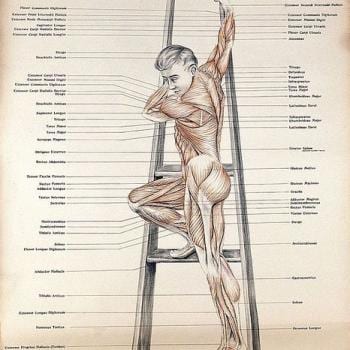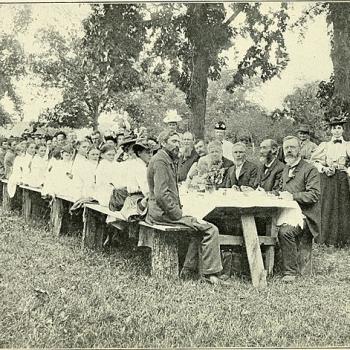Our good editor here encouraged posts about “what good is religion, anyway.” In my neck of the Protestants woods, Presbyterians (Orthodox Presbyterian Church) are breaking bread with Reformed Protestants (United Reformed Churches) to produce a Psalter-Hymnal that both communions can use for corporate and private worship. This is either remarkably historic or unbelievably kooky.
The historic significance may be for one wing of American Presbyterians (the OPC) to return to a complete Psalter for public worship. Ever since the First Pretty Good Great Awakening, Presbyterians in North America have preferred singing Charles Wesley and Isaac Watts to King David. The Psalter had been the pattern for most English-speaking Protestants — the Church of England still produces some of the loveliest Psalm-singing imaginable. But the Psalms were no match for the emotions that Watts and Wesley could produce, feelings that went with the kind of dramatic conversions for which George Whitefield and Jonathan Edwards were calling. Ever since then, the experience of the singer has been far more determinative for Protestant congregational singing than biblical content. But with a new Psalter-Hymnal, these two groups of Calvinists could correct church history.
The kooky part of this effort is to think that anyone in their right mind these days would sing in worship out of a book. Doesn’t everyone sing off a wall? In point of fact, everyone may sing off a wall but singing is better out of a book than off a wall. What is especially important to notice about psalmody and hymnody is that the older tunes were far more singable by congregations than the tunes that today support congregational singing. If you already know the contemporary melody, fine. But if you don’t, and since the the projection on the wall doesn’t include music (nor can most singers sing the kind of syncopation that informs most modern melodies), most contemporary Praise & Worship music leaves the uninitiated cold. And I thought this was supposed to be seeker-friendly.
The other blessing of Psalm singing is that teaching opportunity it provides to pastors and church officers. Imagine what you need to explain to people who have just sung Psalm 87:
Zion, founded on the mountains,
God, thy Maker, loves thee well;
He has chosen thee, most precious,
He delights in thee to dwell;
God’s own city, God’s own city, God’s own city,
Who can all thy glory tell?Heathen lands and hostile peoples
Soon shall come the Lord to know;
Nations born again in Zion
Shall the Lord’s salvation show;
God Almighty, God Almighty, God Almighty,
Shall on Zion strength bestow.When the Lord shall count the nations,
Sons and daughters he shall see,
Born to endless life in Zion,
And their joyful song shall be:
“Blessed Zion, Blessed Zion, Blessed Zion,
All our fountains are in thee.”
You have the chance to explain that this reference to God’s own city is not about Washington, D.C., or even to modern day Jerusalem but is about the heavenly city that all believers, contemporary and traditional, look for, just like Abraham:
By faith Abraham obeyed when he was called to go out to a place that he was to receive as an inheritance. And he went out, not knowing where he was going. By faith he went to live in the land of promise, as in a foreign land, living in tents with Isaac and Jacob, heirs with him of the same promise. For he was looking forward to the city that has foundations, whose designer and builder is God. (Hebrews 11:8-10 ESV)
(Image)















